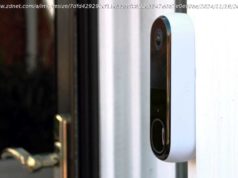When Twitter abruptly suspended the accounts of several journalists with no explanation, the platform’s owner Elon Musk hinted at the possible reason: They allegedly doxxed him.
When Twitter abruptly suspended the accounts of several journalists with no explanation, the platform’s owner Elon Musk hinted at the possible reason: They allegedly doxxed him.
“You dox, you get suspended. End of story. That’s it,” he said on a Twitter Space audio discussion late Thursday, referring to the act of disclosing someone personal details online.
Musk targeted journalists from The New York Times, CNN, and other outlets after suspending a Twitter account that tracked his private jet using publicly available data—an account Musk had previously said he would leave alone as a demonstration of his commitment to free speech.
Twitter updated its policy this week, saying it would remove any tweets or accounts that share someone’s live location if it’s not done to help in humanitarian efforts or during public events.
Several of the journalists whose accounts were suspended had written about the plane tracking Twitter account as well as Musk’s reasoning for the new policy, which followed Musk’s claims that a family member in Los Angeles had been stalked earlier in the week.
SO WHAT IS DOXXING?
Doxxing, sometimes written as doxing, is a shortened version of “dropping dox” or documents.
It’s typically a malicious practice that involves gathering private or identifying information and releasing it online without the person’s permission, usually in an attempt to harass, threaten, shame or exact revenge.
Jeff Kosseff, a cybersecurity law professor at the U.S. Naval Academy who wrote a book tied to the topic, said doxxing is not a legally defined term and it can mean different things to different people. Some people think only applies to the sharing of private information. The Department of Homeland Security says doxxers may use publicly available information, such as property records.
“If you were to take DHS’ definition, the fact that plain data is already open source and publicly available doesn’t necessarily mean that it’s not doxxing,” Kosseff said. “But DHS does have what I think most people include, which is malicious purposes. And it’s really hard to make that judgment about why someone is posting this information.






